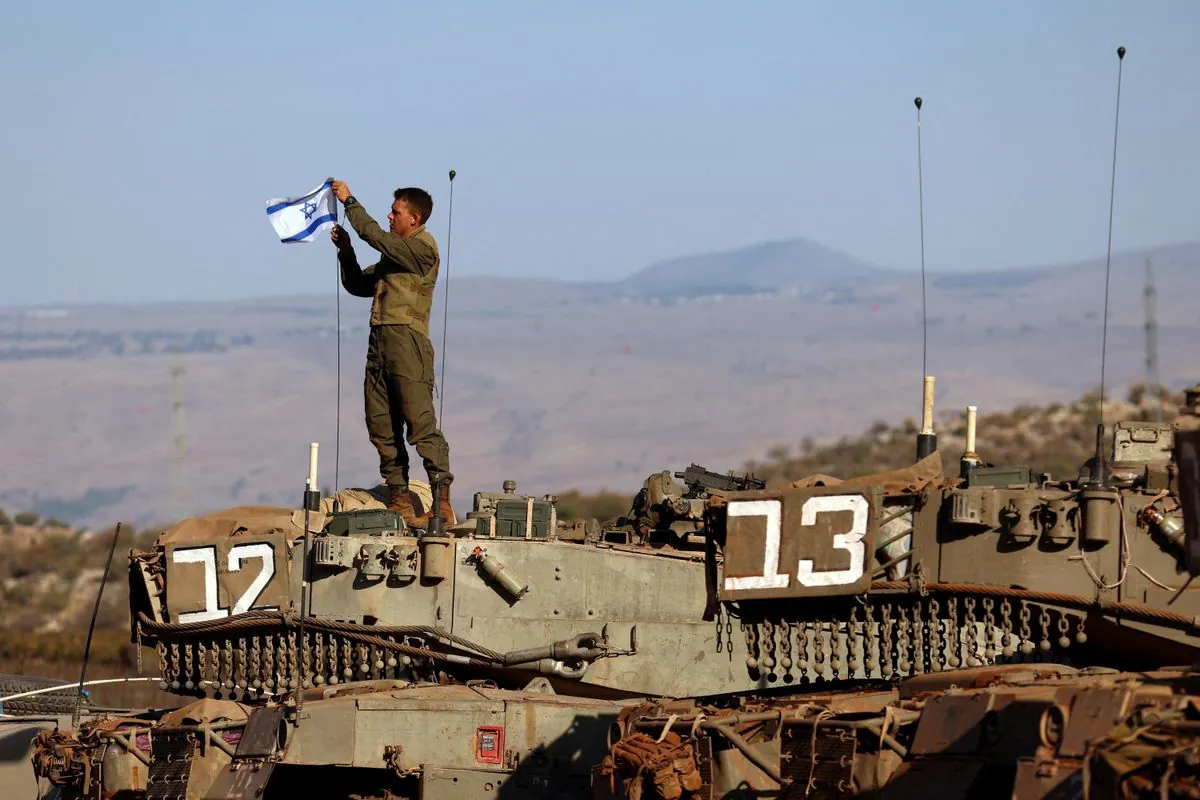On September 19, 2024, the Israeli military initiated strikes against Hezbollah targets in Lebanon, coinciding with an anticipated address by the group's leader. This development marks a significant escalation in the ongoing tensions between Israel and the Iran-backed Lebanese organization.
Hezbollah, founded in 1982 during the Lebanese Civil War, has long been a source of conflict in the region. The group, designated as a terrorist organization by several countries, is estimated to have between 25,000 and 50,000 fighters in its military wing.
The Israeli Defense Forces (IDF) issued a statement accusing Hezbollah of militarizing civilian areas in southern Lebanon. According to the IDF, "For decades, Hezbollah has weaponized civilian homes, dug tunnels beneath them, and used civilians as human shields." This accusation highlights the complex nature of the conflict, where civilian populations are often caught in the crossfire.
In response to the escalating situation, Lieutenant General Herzi Halevi, Chief of the General Staff, has recently approved strategic plans for Israel's northern border region. The IDF stated, "The IDF is operating to bring security to northern Israel in order to enable the return of residents to their homes, as well as to achieve all of the war goals."
This military action comes in the wake of a series of attacks on Hezbollah's communications infrastructure. These incidents, which occurred in the recent past, resulted in 37 fatalities and approximately 3,000 injuries. The attacks targeted booby-trapped radios and pagers, raising concerns about the potential for a full-scale conflict.
While Israel has neither confirmed nor denied involvement in these attacks, multiple security sources have suggested that they were orchestrated by Mossad, Israel's intelligence agency. This speculation adds another layer of complexity to the already tense situation.
Hassan Nasrallah, who has led Hezbollah since 1992, was scheduled to deliver a speech shortly after the Israeli strikes began. His address is highly anticipated, given the recent events and the potential for further escalation.
The conflict between Israel and Hezbollah has a long and complicated history, including the 2006 Lebanon War. Hezbollah's extensive military capabilities, including a large arsenal of rockets and missiles, have been a constant concern for Israeli security.
It's worth noting that Hezbollah's influence extends beyond military operations. The organization also functions as a political party in Lebanon, holding seats in the parliament. Additionally, it maintains an extensive social services network within the country, further complicating its role in Lebanese society.
As tensions continue to rise, the international community watches closely. Hezbollah's strong ties with Iran and its involvement in other regional conflicts, such as the Syrian Civil War, add to the complexity of the situation. The potential for wider regional implications remains a significant concern as both sides navigate this latest escalation.
"The IDF is operating to bring security to northern Israel in order to enable the return of residents to their homes, as well as to achieve all of the war goals."
